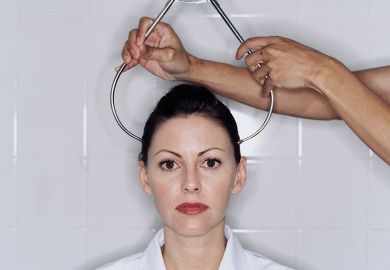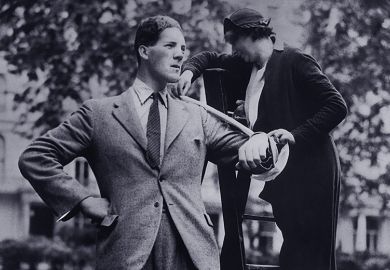Fat cats finally unmasked?
“One should always be especially grateful for research that conclusively confirms what one always suspected in the first place.”
That was the enthusiastic response of Poppleton’s leading dissident, Mr Ted Odgers, to the news that a high-powered duo of economists had critically examined the claim that the huge recent increases in the pay of vice-chancellors were based on their performance.
Mr Odgers commended the researchers, Dr Adelina Gschwandtner and Dr Richard McManus, for their assiduity. “They weren’t content with a mere sample of vice-chancellors. Oh no. That wasn’t good enough. They examined the performance of 150 of them over an entire decade.”
As a result of such extensive research, the two economists were able to conclude that the massive increases in pay for individual vice-chancellors had absolutely nothing whatsoever to do with the actual performance of their universities but owed everything to “keeping up with the Jones’s [sic]” or, in Mr Odgers’ distinctive formulation, “unbridled greed”.
However, while welcoming this rigorous confirmation of what every fully conscious academic already knew, Mr Odgers allowed himself to wonder whether this type of finding might now prompt a similarly hard-hitting examination of the claim that contestants on Love Island were primarily there for the sunshine.
Touching up the TEF
“We only realised something had gone seriously wrong with our TEF calculations when we saw that they had denied gold status to such Russell Group universities as Liverpool, Southampton, Durham and York.”
This was the frank admission made to our reporter Keith Ponting (30) by an unofficial spokesperson for the teaching excellence framework.
But, suggested Ponting, if that was the outcome of their calculations then surely there was no other course but to accept the findings, however disconcerting.
“That did give us pause for thought. But then, of course, we realised that our findings contradicted a central premise of higher education, the premise that whatever their actual performance, Russell Group universities are superior to all other UK institutions of higher education.”
So, wondered Ponting, how was the dilemma resolved?
“Well, when these apparently inferior Russell Group universities decided to question their ratings and re-enter the assessment, we had the ingenious idea that we could raise their standing by simply saying that since their first assessment they’d greatly improved their teaching quality.”
But, wondered Ponting, wasn’t that slightly absurd as the universities in question would then appear to have raised their teaching quality in a mere six months?
“That did give us pause for thought. But then we had another idea. Why not change the performance criteria? If we simply halved the TEF ratings that had been based on the National Student Survey and brought in some new figures based on graduate earnings, then, hey presto, Liverpool and Southampton went up from bronze to silver and York and Durham moved up to gold. It was positively alchemical.”
But, wondered Ponting, although these revised procedures might well have lifted the likes of Durham and York from their second-class status, didn’t their use throw doubt on the initial TEF rankings given to every other university in the country?
“That did give us pause for thought.”
Register to continue
Why register?
- Registration is free and only takes a moment
- Once registered, you can read 3 articles a month
- Sign up for our newsletter
Subscribe
Or subscribe for unlimited access to:
- Unlimited access to news, views, insights & reviews
- Digital editions
- Digital access to THE’s university and college rankings analysis
Already registered or a current subscriber?




